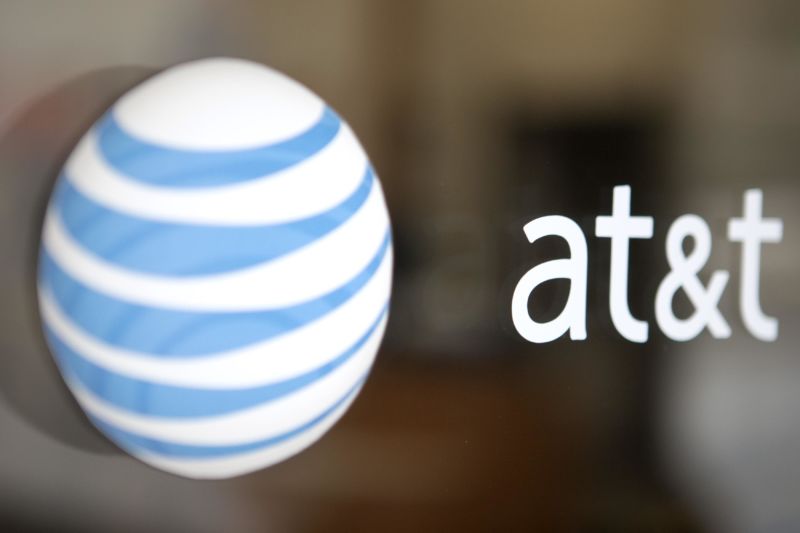June 18, 2018 at 10:40AM
via Ars Technica

Getty Images | Bloomberg
AT&T will soon offer a new streaming video service thanks to its acquisition of Time Warner Inc., and it will be buying more companies in order to beef up its advertising platform, AT&T CEO Randall Stephenson said. The streaming service will be free for AT&T mobile customers who subscribe to unlimited data plans and $15 a month for everyone else.
Stephenson spoke to CNBC Friday, one day after AT&T completed its acquisition of Time Warner. The acquisition gives AT&T control of Warner Bros., HBO, and Turner Broadcasting System.
AT&T will announce more acquisitions soon to improve its advertising system.
"We're standing up a significant advertising platform; you should expect some smaller [mergers and acquisitions] in the coming weeks to demonstrate our commitment to that," Stephenson said.
The company is also launching "AT&T Watch TV," a streaming service that includes Turner programming. Stephenson called it "a very skinny bundle" that will not include sports programming.
"It will be entertainment-centered. If you're an AT&T unlimited customer it will be free, or you can buy it for $15 a month on any platform," Stephenson said. AT&T's unlimited wireless plans already included HBO even before the Time Warner acquisition.
"Those are the kinds of things we'll be bringing to market [because of the Time Warner buy]," Stephenson said. "These will be ad-supported models."
Stephenson said that "every single one of our mobile customers will get" AT&T Watch TV, although it's not clear what that means since only customers with unlimited data plans will get it for free. Stephenson said that AT&T will reveal more details on how the new service will work this week. At the very least, AT&T could let its non-unlimited mobile customers stream Watch TV without using up their data caps.
Time Warner was renamed "WarnerMedia" after the acquisition closed last week.
AT&T has been making advertising a bigger part of its business over the past few years, raising privacy concerns in the process of doing so. AT&T used to charge fiber Internet customers at least another $29 a month in order to help them avoid having their Web browsing scanned for the purpose of serving personalized ads. AT&T ended the pay-for-privacy scheme in 2016, but it could bring back something like it in the future.
No net neutrality or privacy rules
AT&T was able to complete the buy of Time Warner after a federal judge ruled against a Department of Justice lawsuit that sought to block the merger. Stephenson first revealed the new streaming service in April while testifying during the trial.
AT&T will have plenty of leeway in how it favors Time Warner programming on its TV and broadband services because of federal government decisions not to enforce broadband privacy and net neutrality rules.
The privacy repeal lets AT&T and other Internet providers analyze customers' Web browsing habits in order to serve personalized ads without seeking their consent in advance. The privacy rules would have forced companies like AT&T to obtain customers' opt-in consent instead of merely letting customers opt out after the fact.
Separately, the repeal of net neutrality rules could let AT&T prioritize its own streaming video services on its home and mobile broadband networks, while either slowing down rivals or charging them for access. At least for now, AT&T says it isn't doing any of that. But offering Watch TV for free to unlimited data users wouldn't have violated the former net neutrality rules, so AT&T could do that with or without the repeal.
On mobile broadband plans with data caps, the net neutrality repeal lets AT&T continue to use "zero-rating" to exempt its own video services from monthly caps while charging rivals for the same privilege. AT&T already does this with DirecTV's online services—the FCC ruled that this was a net neutrality violation in the last days of the Obama administration, but the FCC reversed the decision just after President Trump's inauguration.
On its home broadband network, AT&T is not allowed to use zero-rating to "discriminate in favor of its own video programming services" as a condition on its 2015 purchase of DirecTV. When requiring the condition, the Federal Communications Commission said that AT&T imposes home Internet data caps more broadly than other large providers, making it "necessary to address any increased incentive AT&T will have to use these practices to hinder the development of third-party OVDs [online video distributors] as a competitive option to its own video offerings."
But that condition applies only to AT&T's home Internet services such as DSL and fiber, not to its mobile network. The FCC also set the condition to last just four years, so it will expire in July 2019.